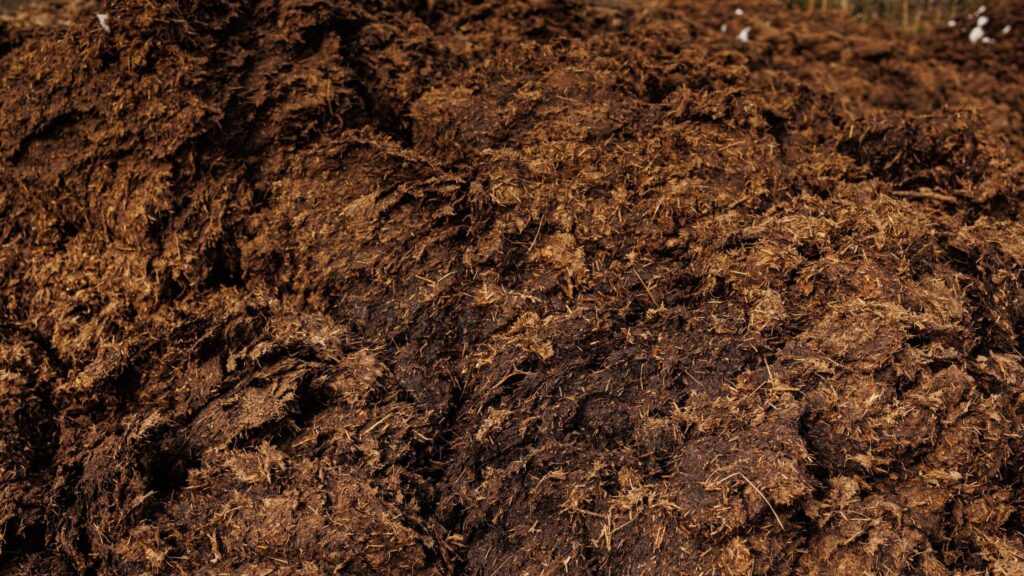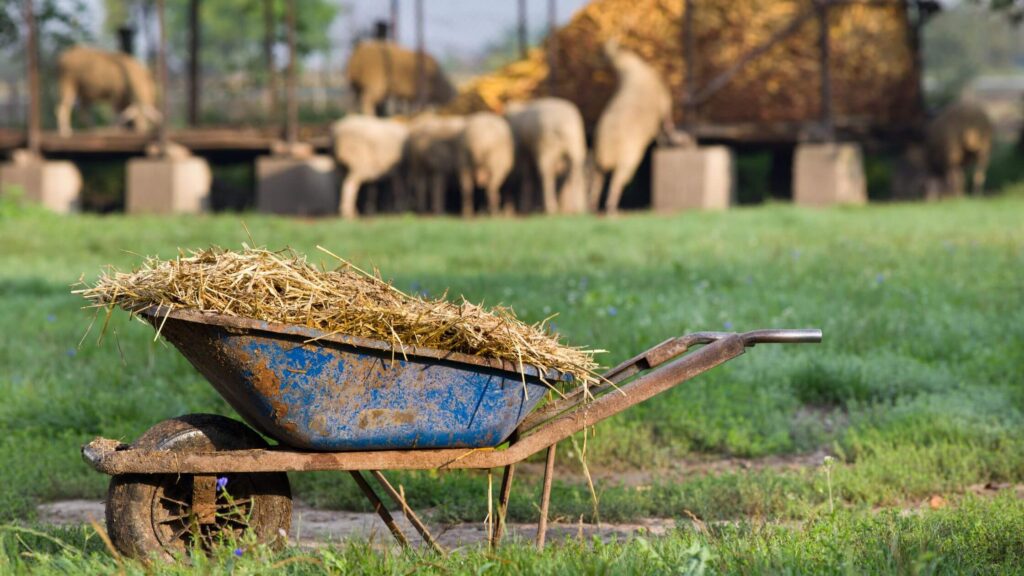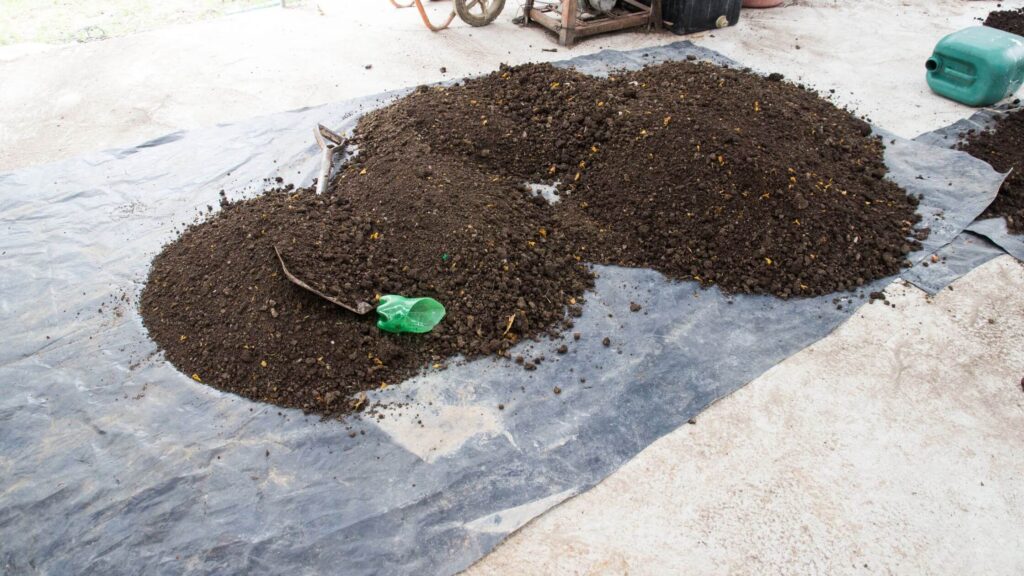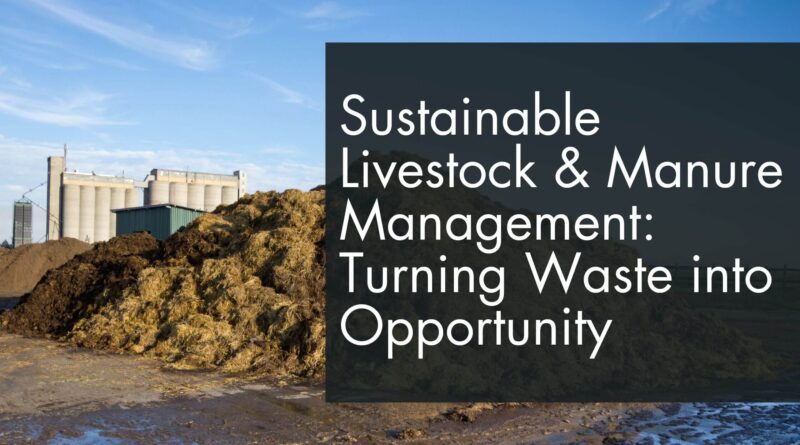Sustainable Livestock & Manure Management : Turning Waste into Opportunity
Inefficient manure management remains widespread across many farms globally, largely due to limited awareness of the potential value of livestock waste. When manure is carelessly dumped in piles, slurries, or open lagoons, it not only wastes essential nutrients but also releases methane—a potent greenhouse gas. These practices contribute to environmental pollution, pose health risks, and result in the loss of a powerful natural fertilizer and renewable energy source.
Improve barn hygiene and boost efficiency with an automated manure scraper system designed for modern dairy farms.

These sustainable practices help reduce emissions of short-lived climate pollutants like methane, while also offering farmers economic advantages through nutrient recycling, cost-effective fertilization, and the opportunity to generate additional income.
The Climate Impact of Livestock Manure and the Urgent Need for Better Management
Livestock manure is a major contributor to short-lived climate pollutants (SLCPs) through two primary pathways:
Methane emissions from liquid manure stored in pits or tanks
Black carbon emissions from the burning of dried dung and pastureland for heating and cooking
Enhance manure handling efficiency with reliable pumping and mixing solutions for consistent flow and effective slurry management on dairy farms.
Methane, a potent greenhouse gas, is especially prevalent in manure stored under anaerobic (oxygen-free) conditions. Meanwhile, the burning of manure and vegetation releases black carbon, which not only harms air quality but also accelerates climate change.
These emissions pose a serious threat to agriculture by degrading the environment and altering climatic conditions vital for crop and livestock productivity.

As global populations grow—particularly in developing nations—the demand for meat, milk, and other animal products is rising. This increase will require more livestock, which, without sustainable manure management, means a proportional surge in greenhouse gas emissions and environmental challenges related to waste handling.
Despite the availability of integrated manure management solutions, many farmers remain unaware or are unable to adopt them due to technical barriers, limited resources, institutional gaps, and socio-economic challenges.
Promoting education, support systems, and access to sustainable practices is essential to reduce emissions, enhance soil health, and create a climate-resilient future for livestock farming.
Driving Policy and Local Action for Sustainable Manure Management
Their approach supports integrated manure and urine management practices that cover every stage of the process—from animal excretion and waste collection to housing, storage, treatment, transport, application, and even emissions or losses that occur along the way. This comprehensive strategy ensures that manure is seen not as waste but as a valuable resource for renewable energy, soil health, and climate resilience.

Through collaborative efforts with governments, farmers, and local communities, the Coalition aims to implement solutions that are environmentally responsible and economically viable.
Global Actions to Improve Manure Management and Reduce Climate Pollutants
The Climate and Clean Air Coalition is actively working across five key regions to explore practical solutions for sustainable manure management. By conducting regional studies and collaborating with local agricultural producers, researchers, and policymakers, the Coalition promotes knowledge-sharing and connects stakeholders with the tools and resources they need for impactful change.

Focus Areas of Impact
Efforts are concentrated on reducing methane and short-lived climate pollutant (SLCP) emissions in diverse livestock systems, including:
Mixed dairy farming systems
Beef cattle production
Small ruminant farming (goats and sheep)
Commercial pig farming
Enhanced mixed dairy systems
Optimize nutrient recovery and reduce waste volume with an advanced manure separation system for sustainable livestock operations.
How the Coalition Is Making a Difference
The Coalition and its partners have established a multi-layered approach to accelerate sustainable manure management through:
Awareness & Advocacy :
Engaging with policymakers, private sector players, and farmer organizations to highlight sustainable manure management strategies.Global Advisory Board :
A board comprising top international institutions offers strategic direction and technical leadership.Regional Infrastructure :
A Central Hub supported by three Regional Centres in Africa, Latin America, and Asia coordinates action, identifies local opportunities, builds networks, and manages projects.Knowledge Exchange Networks :
Established platforms connect stakeholders to share best practices and forge strong, collaborative partnerships.Digital Learning Hub – The Manure Management Kiosk :
An online portal offering remote access to practical guides, case studies, and training materials on sustainable manure handling.Expert Technical Support :
A global roster of experts provides technical training, policy advice, implementation support, and custom analysis — bolstered by co-financing and partner contributions.Project Launch & Resource Access :
On-the-ground initiatives provide farmers and organizations with the insights, expertise, and funding resources necessary to upgrade manure management practices.
Core Objectives
Integrate sustainable manure management into livestock systems
Reduce methane and SLCP emissions through improved handling and treatment
Capture methane for use as a renewable energy source
Maximize nutrient use from manure to enhance soil health and crop productivity
Address implementation barriers to strengthen food security and promote sustainable agriculture
Measurable Impact : Advancing Manure Management Around the Globe
Through strategic funding and collaborative initiatives, the Climate and Clean Air Coalition has driven tangible progress in sustainable manure management practices across multiple regions. These efforts have not only influenced policy but also built local capacity and raised global awareness.
Key Achievements So Far :
7 Opportunities for Practice Change (OPCs) implemented across seven countries, showcasing real-world improvements in manure policies and practices.
13 specialized training sessions conducted for agricultural extension workers, with nearly 300 professionals equipped to support sustainable manure strategies.
5,794 farmers directly trained by extension workers on advanced manure management techniques to cut short-lived climate pollutant (SLCP) emissions.
2 national policies on integrated manure management successfully drafted, 1 additional policy currently in development, and 1 policy notably influenced.
52 regional workshops and 15 global events or summits organized, directly reaching around 2,000 stakeholders from government, agriculture, research, and industry.
Lasting Outcomes :
These initiatives have strengthened knowledge exchange and capacity-building among policymakers, extension agents, and farmers, enabling wider adoption of climate-smart manure management practices. By leveraging both new and existing institutional frameworks and resources, the Coalition continues to promote scalable, impactful solutions at local, national, and regional levels.
for more information visit delmergroup.com

